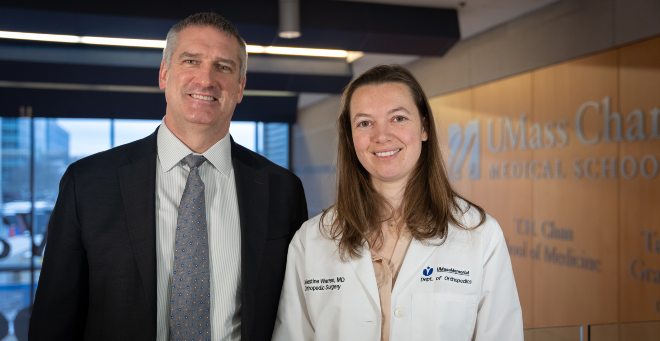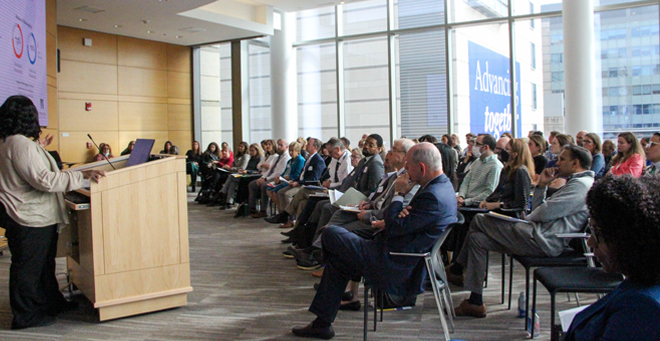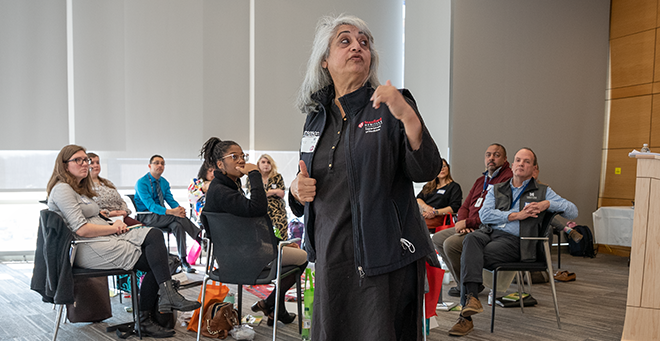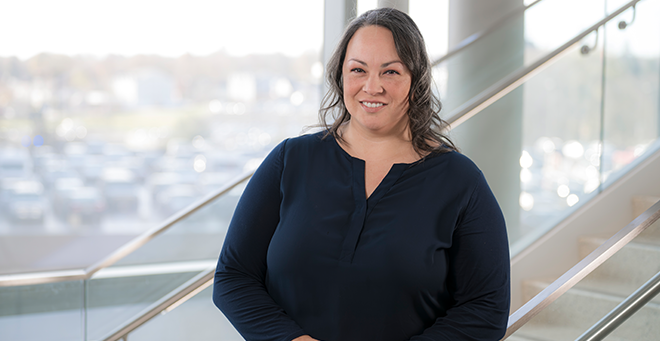
With challenges related to lack of diversity in orthopedic surgery, UMass Chan Medical School’s Department of Orthopedics & Physical Rehabilitation took on the task of understanding how the field can support the recruitment and retention of residents. The research was conceptualized and spearheaded by Celestine Warren, MD, an orthopedics resident who was completing a research year at the time.
The project had two primary objectives: to collect quantitative and qualitative data to examine perceptions of engagement and belonging and to assess perceptions on what makes an inclusive environment. Dr. Warren, with mentorship from Lynn Hernandez, PhD, assistant vice chancellor for diversity and inclusion, and assistance from second-year T.H. Chan School of Medicine student Annie Phan, conducted focus groups from December 2022 to June 2023. Thematic results that emerged included the need for authenticity and community and an understanding of the reality that diversity, equity and inclusion conversations are difficult but necessary.
“In order to foster diversity, equity and inclusion in our department, we feel it is important to ensure that we are creating an environment in which an orthopedic resident of any race, religion, gender and background can flourish. While this happens organically to a certain degree, we felt it was important to evaluate our own culture and consider purposeful ways to make it better for any resident to learn and train to become an orthopedic surgeon,” said Michael P. Stauff, MD, the Donna M. and Robert J. Manning Chair in Orthopedics and chair and associate professor of orthopedics & physical rehabilitation, who played a major role in supporting the project.
“Feeling a lack of belonging can make it difficult for residents to focus and gain the most out of their residency. Any residency, including ours, has experienced attrition in our trainees. We need to make sure that we are doing all that we can to mitigate the risk of this in our program and to support all residents,” Dr. Stauff said. He emphasized that his department has made it a priority to recruit diverse candidates and to ensure a welcoming and supportive atmosphere.
The focus group asked questions about resident experience, which included: What makes you feel you are thriving? Do you feel you can bring your authentic self to work? What prevents that? What structural changes would help? The focus group discussions were then transcribed and analyzed with the hopes of being developed into a publication to share and model for other residencies.
“The goals of the project were met in starting a conversation in the department about diversity and inclusivity. There is a long way to go, but even just opening the discussion was a big first step,” said Warren. The research team also plans to expand focus groups to faculty to hear about their experiences.
Warren participated in a restorative justice training provided by the Diversity and Inclusion Office in January 2022. She became a trained facilitator in the conflict resolution method, enabling her to serve as chief facilitator for the project. Restorative justice is a framework for approaching collective concerns in a way that focuses on listening to all individual perspectives and developing creative solutions to repair the fabric of a community after collective harm. Warren credited Marlina Duncan, EdD, vice chancellor for diversity and inclusion, and Dr. Hernandez for the opportunities she has had to engage in diversity, equity and inclusion work while being a surgical resident.
Future directions of the department’s work include the development of a diversity and equity action plan with initiatives that respond to each of the emerging concerns; a focus on faculty perspectives; and a restorative justice framework to address resident concerns.


